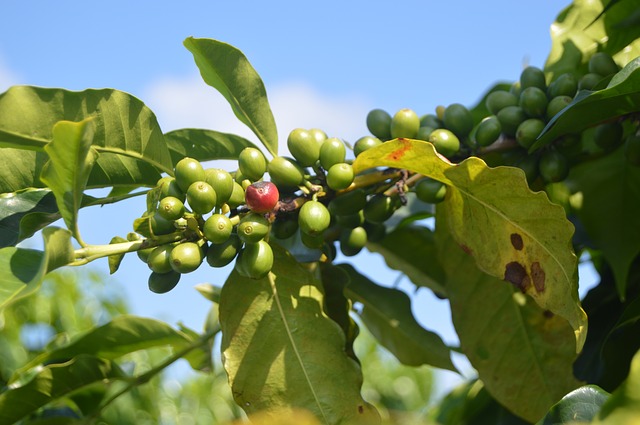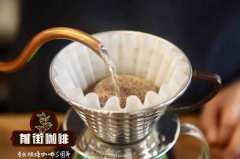Is organic coffee a publicity stunt or a guarantee? Does organic coffee taste better?
Professional coffee knowledge exchange More coffee bean information Please pay attention to coffee workshop (Weixin Official Accounts cafe_style)
Organic coffee requires growers to adopt conservation practices that have a minimal impact on the environment. Organic production system pays attention to maintaining soil fertility, avoiding soil erosion and creating a healthy ecological environment.
Many organic growers see it as a way of life. However, although high-quality coffee can be harvested, growers have not been rewarded for their labor due to the labour-intensive nature of production, the high cost of organic farming and the difficulty of increasing prices.

Organic farming is sometimes forced by economic difficulties
Only farms certified by a qualified inspection agency can be called organic farms. Organic farms cannot use chemical fertilizers, but only organic fertilizers, such as animal manure, coffee fruit pulp or mixed fertilizers; pesticides, fungicides and rust removers cannot be used to control plant leaf rust. Instead,"integrated pest management methods" should be adopted to improve the immunity of farms to pests and diseases through reasonable fertilization, pruning branches and leaves, and creating a healthy ecological environment.
If the farm is unlucky enough to be infested with pests, it will be difficult to eradicate them in the short term. Organic coffee growers also plant shade trees (which help form a natural ecosystem), weed by hand, and maintain soil fertility with organic nutrients. So growing organic coffee requires a complex strategy.
Small-scale growers mostly do not apply pesticides to trees. In 2011, we surveyed 90 Guatemala farmers about their pesticide use, and only 3 percent said they used pesticides. Most farmers grow their crops organically because they cannot afford to invest more in their farms.
These conditions are not ideal for growers, and while not using fertilizers and pesticides can save costs, the yield and quality of coffee will also decline. Investing in fertilizer (organic or non-organic) is worth it because it increases yields, but in some extremely poor countries it can be hard for growers to make up their minds to invest money in order to harvest a few months later.
The reason our suppliers adopt organic farming systems is that they are inspired by organic farming concepts and feel responsible for the environment, land, trees and biodiversity of their farms. They tell us that organic farming is a way of life, and they are willing to take responsibility for protecting nature.
More expensive to grow, but not necessarily better quality
If organic means expensive chemicals cannot be used, is organic farming cheaper than traditional farming methods? Almost all growers will answer that organic farming is more expensive. Colombia's National Coffee Research Center, a world leader in coffee research, reported that 12 kilograms of fermented coffee fruit pulp is equivalent to 150 grams of fertilizer, enough to meet the annual consumption of one coffee tree. Multiply this by 4000, or the number of coffee trees planted on one hectare, and you get 47400 kilograms of organic fertilizer. That much fertilizer needs to be transported, moved, and applied to each tree, and the extra transportation and labor costs extra.
Growers also say organic farming is labour-intensive. If one hectare of land is weeded with herbicide, it can be done in one day by a worker carrying a sprayer, and it takes 4 to 6 weeks to weed the same area by hand. Wages in some coffee-growing countries are low, as little as $5 a day, while in countries such as Brazil wages can reach $60 a day. So, for the most part, organic farming is much more expensive than traditional farming.
In addition, organic certification costs $3,000 to $4,000 a year. Some of the growers we work with are fully qualified for organic farming, but choose not to be certified, partly or largely because of cost considerations.
Source: Coffee everywhere.
By Jeremy Totts and Steven Makadonia
Translated by: White
END
Important Notice :
前街咖啡 FrontStreet Coffee has moved to new addredd:
FrontStreet Coffee Address: 315,Donghua East Road,GuangZhou
Tel:020 38364473
- Prev

Why does Espresso use 9bar? What is the effect of stress on espresso?
Professional coffee knowledge exchange more coffee bean information Please pay attention to the coffee workshop (Wechat official account cafe_style) the key to making espresso lies in stress, while the crema, quantity and flavor of espresso all come from the influence of stress. But why is stress so important? How does it affect concentrated formulations? Why is nine atmospheric pressure the most commonly recommended pressure setting for brewing coffee?
- Next

What is the selling point of decaf coffee at the expense of taste and flavor? Is decaf good?
Professional coffee knowledge exchange more information about coffee beans Please follow the coffee workshop (Wechat official account cafe_style) caffeine is found in coffee and tea, two common and ancient refreshing drinks. In addition to keeping people awake, they also make people feel slightly happy, which may be related to the fact that caffeine affects the metabolism of dopamine, a substance that activates reward centers in the brain. In addition
Related
- Beginners will see the "Coffee pull flower" guide!
- What is the difference between ice blog purified milk and ordinary milk coffee?
- Why is the Philippines the largest producer of crops in Liberia?
- For coffee extraction, should the fine powder be retained?
- How does extracted espresso fill pressed powder? How much strength does it take to press the powder?
- How to make jasmine cold extract coffee? Is the jasmine + latte good?
- Will this little toy really make the coffee taste better? How does Lily Drip affect coffee extraction?
- Will the action of slapping the filter cup also affect coffee extraction?
- What's the difference between powder-to-water ratio and powder-to-liquid ratio?
- What is the Ethiopian local species? What does it have to do with Heirloom native species?

